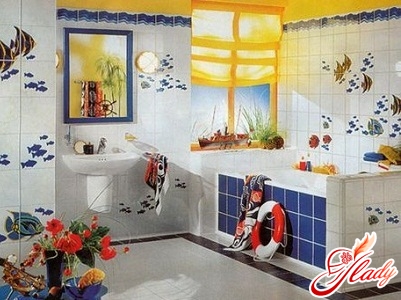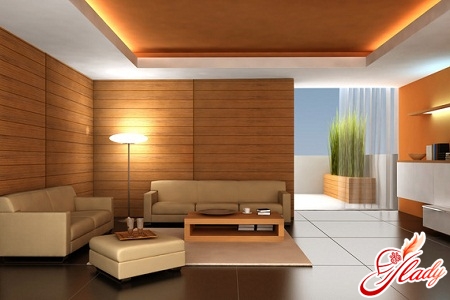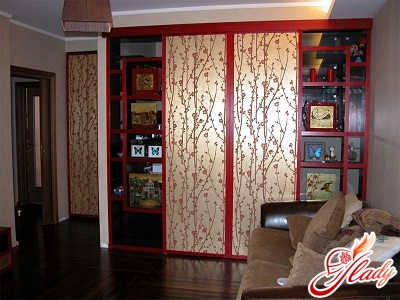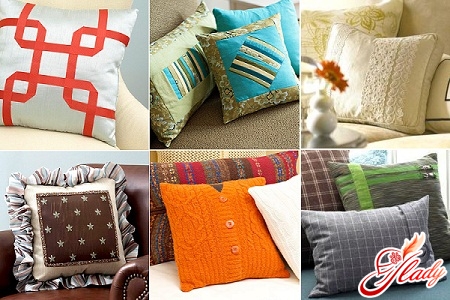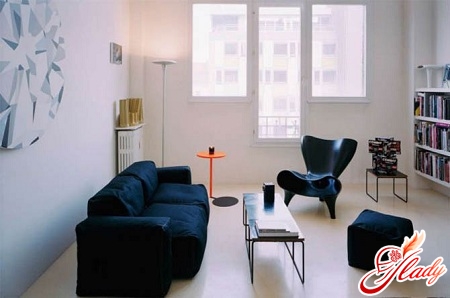 As they say, for some people the soup is empty, but for otherspearls are small. And when it comes to the size of the home, many complain about its small dimensions. And it does not matter what is meant, very tiny one-room apartments, or multi-room, but cramped apartments of the old layout. So if your home seems not particularly spacious to you, then perhaps it is worth learning the rules for organizing the interior of small apartments. Moreover, these rules apply both to individual very small rooms and to truly modest-sized apartments. The main task of the designer in these cases is to maximally (as much as possible) expand the living space. Moreover, you need to try not only to expand it visually, but also to select and place furniture so that it does not clutter up an already small room. Let's find out how professional designers solve this problem and what tricks they use when decorating the interior of small apartments.
As they say, for some people the soup is empty, but for otherspearls are small. And when it comes to the size of the home, many complain about its small dimensions. And it does not matter what is meant, very tiny one-room apartments, or multi-room, but cramped apartments of the old layout. So if your home seems not particularly spacious to you, then perhaps it is worth learning the rules for organizing the interior of small apartments. Moreover, these rules apply both to individual very small rooms and to truly modest-sized apartments. The main task of the designer in these cases is to maximally (as much as possible) expand the living space. Moreover, you need to try not only to expand it visually, but also to select and place furniture so that it does not clutter up an already small room. Let's find out how professional designers solve this problem and what tricks they use when decorating the interior of small apartments.
Remove or replace
Anything that can be stored in a small (and especiallyin a very small) apartment need to be removed! For example, interior doors. Most often, we have doors, but we use them quite rarely. In the sense that usually the doors are wide open: we intuitively try to expand the space in this way. Open leaves of swing doors "eat up" useful meters. Therefore, if you do not need closed doors, then they can simply be removed, thereby expanding the doorway or turning it into an elegant arch. In the event that doors are still needed, they should be replaced with sliding models. And you can also close the doorway with fabric or bamboo curtains. By the way, some interior styles even welcome this solution. To slightly expand the space of a small room, you can change the heating radiators. This is relevant if your apartment has old bulky batteries. They can be replaced with modern flat models, which will not only free up some space, but will also look much more aesthetically pleasing than the previous ones. What else can be replaced in a very small apartment? For example, a bathtub for a shower stall, curtains for blinds, a kitchen stove for a hob, a TV for a plasma panel, and a bulky desktop computer for a compact laptop. By the way, having a plasma panel and a laptop will save you from the need for a DVD player, a music center, and even an alarm clock. In addition, get rid of all the junk, even if this junk does not seem unnecessary to you. For example, old magazines and books. Of course, calling them junk is blasphemous (especially books), but your apartment is already small. So leave the function of storing printed publications to libraries (by the way, you can give all your books to the nearest library), and buy yourself an e-reader (e-book), which will fit at least a hundred books dear to your heart and mind. Without regret, part with old clothes and all sorts of trinkets and souvenirs. The need for old clothes is not even worth discussing - if you do not wear them, then you do not need them. Various figurines, vases, boxes and the like... Surely you have many such things, once received as a gift (you yourself would hardly buy them). Think, do you really need them? Leave only the very best, only what is truly dear to you as a memory. Everything else - overboard! After such an audit, you will see how much more scarce free space there is.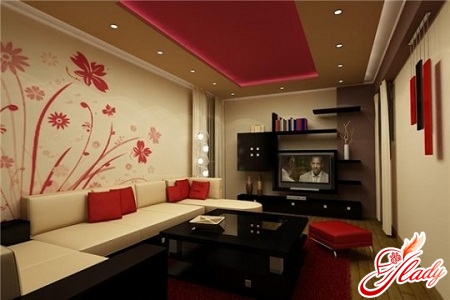
Invisible free space
There is actually no free space in youra small apartment is not so small. You just don’t see it: unoccupied space under wide window sills, corners, walls. Corner racks, bookcases, shelves, and in general any corner furniture is the best fit for a small room. Walls can also be used to the maximum: shelves and niches (open and closed) will fit perfectly into the interior, leaving the floor free, where other furniture will stand (sofa, bed, table, chest of drawers). By the way, racks and shelves can be used very creatively. Closed shelves, for example, can be placed along the perimeter of the room right under the ceiling. A narrow tall rack can be placed perpendicular to the wall and delimit different functional areas with its help. Niche shelves made of plasterboard will generally become part of the wall and save you from having to buy ready-made racks or hanging shelves.
Furniture transformer
Transformer furniture or simply folding furniturefurniture will also allow you to free up as much space as possible in a small room. Naturally, the first thing that comes to mind is a fold-out sofa. This is a really great solution, suitable for optimizing the interior of small apartments. Just give up the idea of buying large and bulky models. No matter how beautiful they look in furniture stores, in a very small apartment such a sofa will look ridiculous, and over time it will begin to irritate. By the way, a fold-out sofa can be placed not only in the living room: in the bedroom it will successfully replace a large double bed and even in the kitchen it will sometimes be quite appropriate. Of course, a sofa in the kitchen is simply an unaffordable luxury for most of us. Most often, you have to be content with more modest and less bulky furniture. As for sofa beds, armchair beds or just beds, then for a small room an excellent solution would be such furniture, which serves as a sleeping place at night and is put away in a closet during the day. And this is already transformable furniture. A folding bed is suitable for a child's room, a parent's bedroom, and even a one-room apartment will find a place for it. Moreover, it is not necessary to collect bed linen from such a bed. Sectional (modular) furniture will allow you to fill the entire wall, but will not take up much space. By the way, changing the interior of a room with such furniture is very easy, and such changes will not require additional financial costs. The same can be said about designer furniture for a child's room: folding beds and tables, rearranged sections are simply an irreplaceable solution for a small room.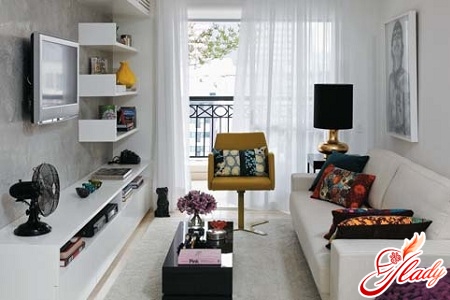
Use the visual effect
The visual effect of a more spacious room is achieved through some tricks:
We unite
This advice is quite controversial and even debatable.For example, many designers advise using zoning when decorating a small apartment. This method is useful when organizing space in a one-room apartment. However, as for very small two- or three-room apartments, the effect of visually unifying the space of different rooms is more appropriate here. This effect can be achieved, for example, by using the same wallpaper for the room and the hallway or in adjacent rooms. In addition, unifying the space of different rooms is achieved by eliminating doors, using mirrors or furniture of the same style. You can also combine the window and the piers: the longer and higher the cornice, the larger the room seems. You can also combine wall cabinets and shelves with the wall by painting everything in the same color. Then the cabinets will “merge” with the walls and become almost invisible. And for a more radical unification, all that remains is to demolish the walls, combining two rooms into one or turning your small apartment into a studio apartment. But these are completely different rules of interior design. So even a very small apartment is not a reason to worry. On the contrary, there is room for creativity and ingenuity. Believe me, in the field of interior design there are simply no unsolvable situations. You just need to approach the solution of your housing issue wisely (and with some financial reserve). And you will definitely succeed! We recommend reading:






